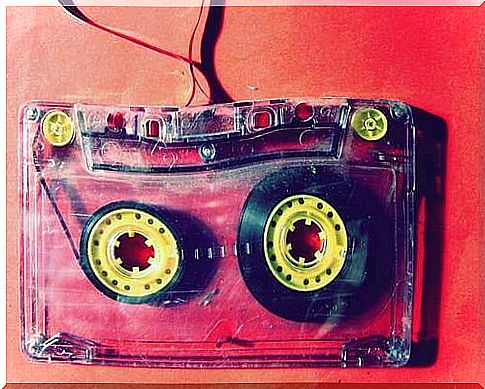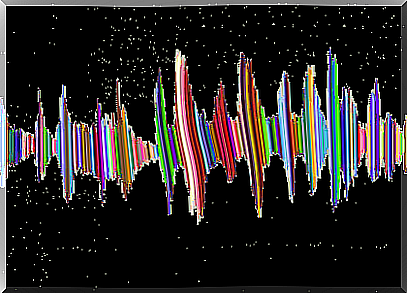When A Song Hits The Head: What To Do?

When a song enters the head and no longer comes out, it is as if we entered a loop. A melody, a rhythm, a sequence of words trap us, they rekindle endlessly like an insistent echo. Sometimes we think of it as a nice background, but it’s generally frustrating to be haunted by the hit of the moment, the tune in an ad, or the song you’ve heard in the mall.
The brain has its mysteries, you know. Let’s face it though, some puzzles are particularly creepy especially when they get out of our control. Statistically it is an experience lived by 98% of people. However, in 15% of cases it becomes a particularly annoying and intrusive phenomenon. This is according to a Canadian research conducted at the University of British Columbia.
This 15% already falls into the field of obsessive-compulsive disorders, in which music can have a disruptive effect on the mind of those who suffer from it. For all the others, however, it remains a passing phenomenon, an experience to be shared in conversations with the typical phrase “I’ve been unable to get this song out of my head all day long”

When a song enters your head: why does it happen?
Earworm is the English word used by psychologists to define this phenomenon. They are the musical worms that creep into the brain and of which we get rid of with difficulty. Some say they prefer artists like Lady Gaga, Queen, Abba, Beyoncé, Adele, Coldplay, etc.
Well, if it is easier to suffer the attack of a musical worm with these singers or groups, it is because we are more exposed to their songs. In fact, any song could enter our head, any music or jingle.
It can occur even without the need to listen to music. Sometimes it is enough for someone to remind us of the title of a song for it to immediately sneak into our mind. So let’s see what happens according to science when a song enters our head.
The simpler it is, the more it adheres to the mind
Music composers and producers know this well. The simpler and more repetitive a song is, the more “sticky” the effect will be on our mind and the more likely it is that the audience will remember it.
Kelly Jakubowski, a lecturer at Durham University, demonstrated the link between type of composition and musical worm.
Our state of mind is crucial
This data is very interesting. The next time your head enters a music loop to understand why you try to analyze your mood.
Dr. Vicky Williamson, an expert in music psychology, explains that we are generally more receptive to this phenomenon when we feel stressed, tired, nostalgic or when we have not slept.
It is as if our tired or stuck brain in a certain emotional state is more predisposed to start repetitive patterns, especially in the presence of musical stimuli.

Memory as a detonator
As we said, it is not necessary to listen to a song on the radio or in the supermarket to fall victim to an earworm . Sometimes we ourselves start this process, with the simple memory of a phrase, a musical tune, a melody that belongs to the past.
A detonation can suddenly emerge from the environment: those shoes that accompanied us on a certain journey, the ice cream we ate as children while our grandmother sang a song …
The brain loves to remember. We know that emotional memory is directly connected with musical memory. It is to the point that these structures are barely affected by neurodegenerative diseases such as Alzheimer’s.
When a song enters the head: how to stop the woodworm?
Certainly this phenomenon can be very annoying. Especially when the song that haunts us is stupid, childish or very distant from our musical tastes. To be able to break the curse or this reiterative mechanism that our brain has started in an arbitrary way, keep these tips in mind:
- Ordering ourselves to stop the process or make the song fade is useless. The brain acts opposite to these direct requests. It’s like when we roll over in bed and force ourselves to sleep. It’s useless.
- The best thing is to get carried away, accept the intruder without resisting. The phenomenon will gradually lose strength.
- Another strategy can be to listen to the entire song once. If musical fragments appear in our mind, let us offer it the complete piece. The effect is generally calming.
Finally, and no less curious, neurologists advise us to chew gum to decrease the effect. It seems that the movement of the jaw interferes with the musical memory. In any case, in general, the phenomenon is destined to vanish within 24 hours.









